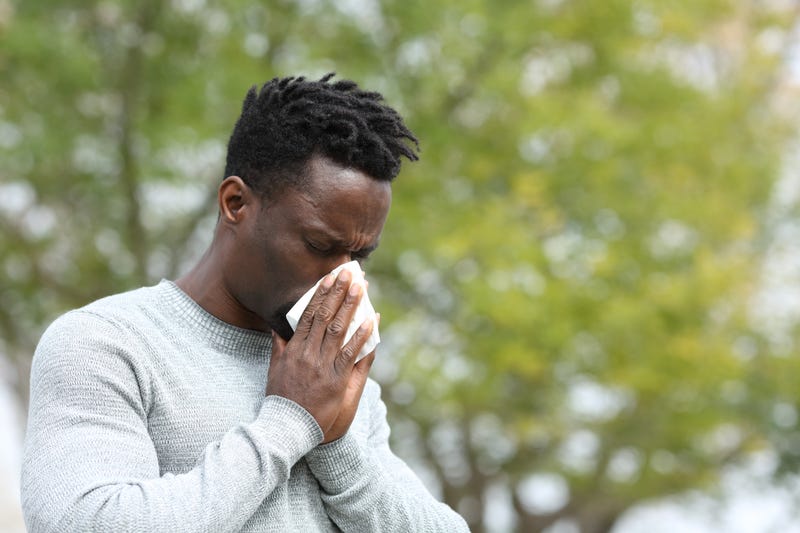
Buffalo, N.Y. (WBEN) - For all allergy sufferers out there in Western New York, if you haven't already, be sure to have your tissues readily nearby this season.
Given above average temperatures this past winter and stretches of warmer weather in the region to start the spring, the 2024 allergy season is already ahead of schedule. Local allergy specialists suspect the outlook this year is going to be a significant one.
"Allergy sufferers will be doing, unfortunately, just that, suffering," said Dr. Stanley Schwartz, Chief of Allergy, Immunology and Rheumatology at the UB Jacobs School of Medicine.
According to the Asthma and Allergy Foundation of America, more than 80 million Americans deal with itchy eyes, runny nose and other symptoms of seasonal allergies, with global warming contributing to the acceleration of the global warming season.
Given the early start to the allergy season here in Western New York, Dr. Schwartz has a feeling that this year is going to be a real barnburner for those who deal with allergy problems every year.
"I was talking to a colleague who taps maple sugar, and they said the trees started flowing much earlier than they ever had. The plants are responding to global warming. I think we're going to see even though we had a blip earlier on and people were complaining about early spring allergies, which are trees, I think we may see a further increase in tree allergies," Dr. Schwartz said with WBEN. "And then the grass season is literally going to start very shortly, and the grasses bloom. Most of the blossoms, by the way, you can't see, they're very small blossoms, and the pollen they give off is quite fine."
How bad may this allergy season in Western New York be compared to those of years past? Dr. Schwartz says every season going forward is likely to get worse-and-worse, depending on what you may remember from before.
"Every season is the worst, and the reason is you kind of forget what happened last season. You say, 'Yeah, I had my problems, but right now, I'm suffering.' So the perception is virtually every season is the worst, even though it may or may not be," he explained. "However, I think in this case and even last year - last year was a significant allergy season - the people who said this was the worst season, they were right. I think they were quite right. Pollen counts were elevated, the pollen started to flow in the air earlier than we normally expect. The other thing is we may be seeing this for the future.
"I do think that while this may be the worst, it's not going to be the worst for the future. That remains to be seen."
So what can you do to get ahead of the rise in allergies this season across the region? Dr. Schwartz recommends the best thing one can do for nasal allergy symptoms is a daily use of nasal spray.
"Over-the-counter nasal sprays, Flonase, there's so many of them. There's steroid nasal sprays, they've been found to be safe, use them correctly, read the label instructions and use them," Dr. Schwartz advises. "In some cases, you could probably double what the label says if you're not getting the best benefit."
Dr. Schwartz reminds allergy sufferers that any steroid nasal spray has to be taken daily if you want to experience any relief.
"You can't just use it when you need it, and stop it when you feel that you're feeling better. If you want to control your symptoms, use it daily," he said. "And again, if your symptoms are really bad, come and see us, any one of us. Whether it's the university or our private allergists in the community, we have an excellent group of [doctors] all over the place, and we would welcome any new patients."
If you want to make an appointment to see your allergist, Dr. Schwrtz warns it is going to be tough during the height of the allergy season.
And if anyone maybe questions whether or not they're dealing with allergy symptoms or a cold, Dr. Schwartz has some helpful tips to determine that as well.
"The general distinction between the two is that usually along with allergies, you get itchiness of the nose and of the eyes. If you have a cold, you can get itchiness, but it's more significant with allergies," he detailed. "Itching is indicative of an allergy, non-itching, of course fevers are more associated with upper-respiratory infections, and allergies persist for quite a long time. Colds go away within a week, at the most. So just be aware of that, and if someone has concerns and questions about their allergies, see their allergist."

